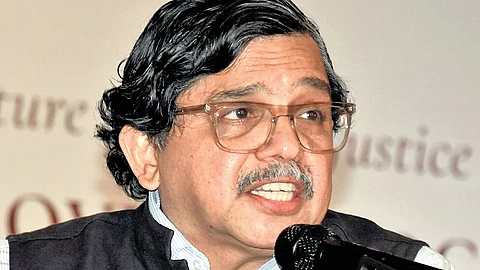

CHENNAI: Judiciary is straining under the weight of bail applications and anticipatory bail applications, said former chief justice of Orissa High Court S Muralidhar, expressing concern over the huge backlog of bail applications in courts across the country.
Delivering the Rakesh Endowment Lecture series for justice and equity on the topic ‘guilty till proved innocent’, dark areas of criminal jurisprudence, Justice Muralidhar said the percentage of cases in the Supreme Court’s docket of bail applications and anticipatory bail applications has been increasing, meaning applicants are coming to the apex court for bail.
He further stated that the scenario explains there is rejection of bail applications in eight out of 10 cases in trial courts, six out of 10 cases in high courts, compelling people to go to the Supreme Court for relief. Justice Muralidhar said stringent bail provisions have shifted the burden of proving innocence on the accused himself.
Under Terrorist and Disruptive Activities (Prevention) Act, commonly known as TADA, if you are in a notified area and you are found with a bullet, then it will be presumed that you are part of terrorist activity, and it will be for you to disprove the fact, he added.
In most of the statutes, TADA, which was enacted in 1985, or its successor the Prevention of Terrorism Act (POTA) Act, all have provisions where getting a bail is near impossible because the onus is on the accused to show that he is not guilty, when even the trial has not commenced, or evidence has been tested.
He further highlighted that they have all borrowed heavily from the Prevention of Terrorism Act from the UK and the Patriot Act from US. “Extended period of detention before filing a chargesheet means virtually detention without trial for at least six months is guaranteed and this continues even under the Unlawful Activities Prevention Act (UAPA) that you heard so often being evoked in ordinary cases in the country increasingly. In India all of this is compounded, and it delays every stage of trial,” said Justice Muralidhar.
Apart from the National Security Act, there are 19 other preventive detention statutes enacted by the state assemblies that enable executive detention without judicial supervision for a minimum of three months and maximum of a year without trial. These are supposed to be temporary measures in an emergency which the state will apply, but it has become a legislative habit to govern through preventive detention and judicial habit not to interfere with such prevention detention, said Justice Muralidhar.
The event was organised by Rakesh Law Foundation and Roja Muthiah Research Library at Egmore.